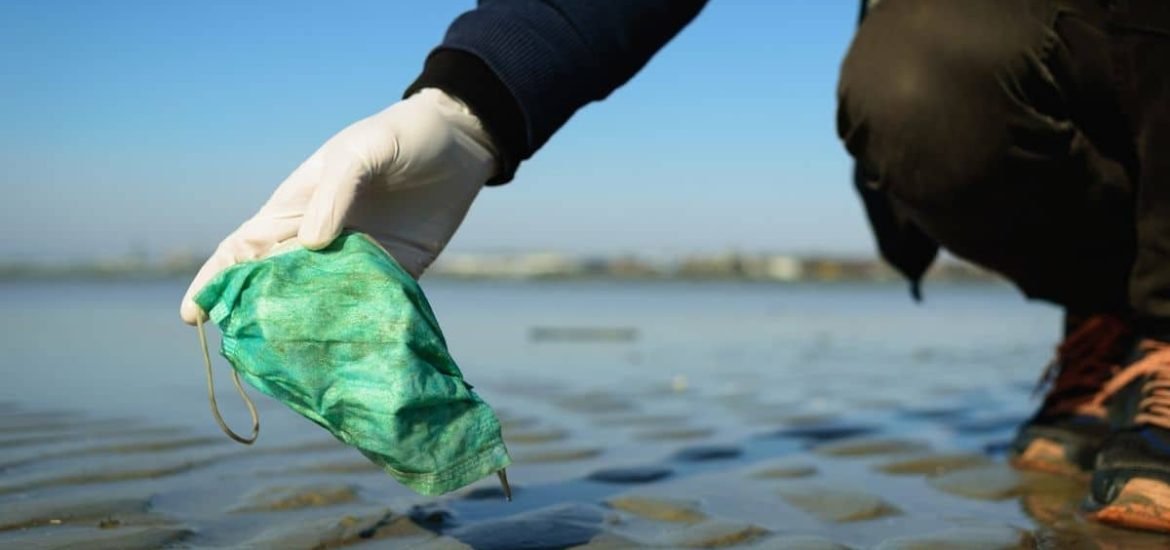
If the global health crisis and economic fallout weren’t enough, the coronavirus may have yet another serious consequence: ocean pollution. Coronavirus waste, such as disposable masks and plastic gloves, are already turning up on beaches and on the seafloor.
Opération Mer Propre, a French non-profit, sounded the alarm a few weeks ago when divers returned from an underwater mission near the Côte d’Azur with dozens of single-use plastic masks, gloves, and hand sanitiser bottles that — along with typical hoards of plastic waste — were found littering the seafloor. In a caption beside one of the videos, co-founder Laurent Lombard wrote: “Would you like to take a dip with COVID-19 this summer?”
The non-profit regularly organises expeditions into the Mediterranean and retrieves plastic debris from beaches along the coast. The group says that if nothing is done, an increasing amount of so-called ‘Covid waste’ will end up in the ocean. They are hoping their videos and images, which are posted on Facebook, will encourage people to invest in reusable masks and swap out latex gloves for handwashing.
“With all the alternatives, plastic isn’t the solution to protect us from Covid”, Joffrey Peltier, another co-founder of Opération Mer Propre, told the Guardian.
It seems no surprise that, among all the other plastic waste, single-use personal protective equipment (PPE) is making its way into the oceans. Already, around 13 million tonnes of plastic makes its way into the ocean each year, according to a 2018 report by the UN. By 2050, there will be more plastic in the ocean than fish, by weight.
The Mediterranean is certainly not immune. Indeed, just last month scientists reported the highest level of microplastics ever recorded on the Mediterranean seabed. These numbers could grow as the coronavirus pandemic – and the protective masks – stays with us for the foreseeable future.
In a letter to Emanuel Macron, calling on the French president to do more to address the environmental consequences of disposable masks, French politician Éric Pauget wrote: “With a lifespan of 450 years, these masks are an ecological timebomb given their lasting environmental consequences for our planet”.
Half of the plastic produced globally is for single-use items. If not properly disposed of, PPE like plastic masks and gloves end up on the pavement or in gutters and are eventually carried away by rainwater into the rivers or sea. “All it takes is a little wind or rain and everything ends up directly into the sea”, Peltier explained to Euronews.
“Of course we need to protect ourselves from COVID-19, but I don’t think plastic is the adequate solution”, said Peltier. The group is pleading with the public to switch from plastic disposable masks to reusable versions and to swap plastic gloves for frequent handwashing with soap and warm water.
The Mediterranean is not the only place where medical waste is turning up. Earlier this year, a Hong Kong-based non-profit, OceansAsia, raised similar concerns after finding dozens of disposable masks in marine debris on the uninhabited Soko Islands and other nearby beaches.
Although the number of masks and gloves is not huge compared to the massive glut of plastic waste, environmentalists fear they may become a new source of pollution, as millions of people around the world turn to single-use PPE to protect themselves against COVID-19.